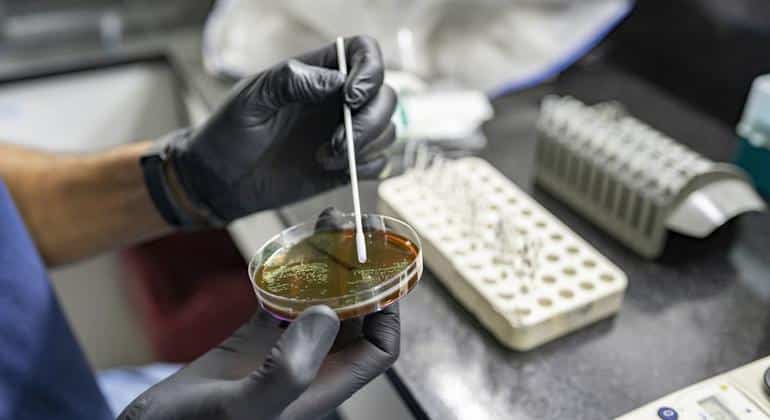During the Fourth World Ministerial Meeting on Antimicrobial Resistance, held in Jeddah, Saudi Arabia, the Director-General of the World Health Organization (WHO), Tedros Adhanom Ghebreyesus, issued a stark warning about the critical situation of antimicrobial resistance. As he highlighted in his address, this phenomenon not only jeopardizes the effectiveness of essential medications, but is already claiming an alarming toll of 1.3 million deaths annually caused by superbug infections.
Tedros compared the urgency of addressing antimicrobial resistance to climate action, calling for the international commitment expressed in the UN General Assembly Political Declaration last September to be translated into concrete and urgent actions. In this regard, he underscored three strategic priorities for low- and middle-income countries: promoting sustainable financing, enhancing research, development, and innovation, and ensuring equitable access to quality antimicrobials, while ensuring their proper use. He emphasized the inherent paradox of resistance: while the inappropriate use of antimicrobials increases their presence, many people die due to lack of access to these medications.
The meeting in Jeddah also featured remarks from Saudi Minister of Health, Fahad Al-Jalajel, who warned about the profound impact of antimicrobial resistance on all aspects of life, identifying it as a direct threat to public health, economic stability, and global security. During the conference, discussions were held on the “Jeddah Declaration,” which proposes the establishment of a global scientific committee focused on this challenge.
Hanan Balkhy, WHO Regional Director for the Eastern Mediterranean, stressed that antimicrobial resistance has implications beyond the health sector, affecting various Sustainable Development Goals (SDGs). She emphasized the need for multisectoral dialogues to highlight the relevance of this issue, which also impacts food production and equity.
The complexity of combating antimicrobial resistance is heightened in conflict situations, where access to healthcare services and optimal sanitary conditions is a luxury. In response, the WHO is implementing innovative solutions to ensure dignified living conditions and access to clean water.
The Deputy Director-General of the Food and Agriculture Organization of the United Nations (FAO), Thanawat Tiensin, also present at the conference, urged countries and actors in the sector to take steps to reduce the dependence on antimicrobials in agriculture. He pointed out that close to 70% of antibiotics are used in livestock production and emphasized the need to reform agricultural practices to ensure future food sustainability.
Referrer: MiMub in Spanish










